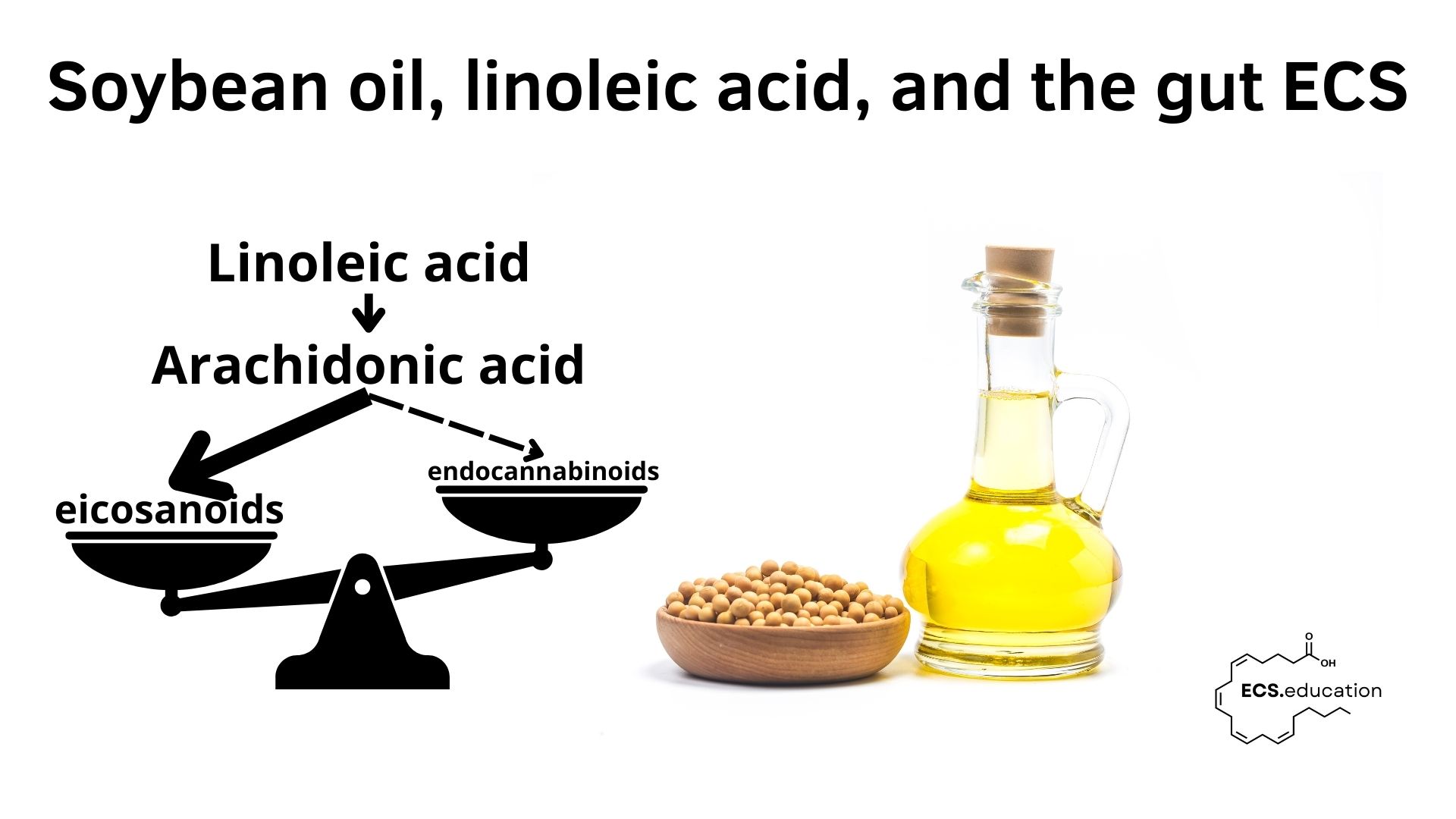A recent study titled ‘Diet high in linoleic acid dysregulates the intestinal endocannabinoid system and increases susceptibility to colitis in Mice‘ shows that eating a lot of linoleic acid from soybean oil changes lipid chemistry in the gut in a way that weakens the protective endocannabinoid system and strengthens inflammatory…
Tag: ECS
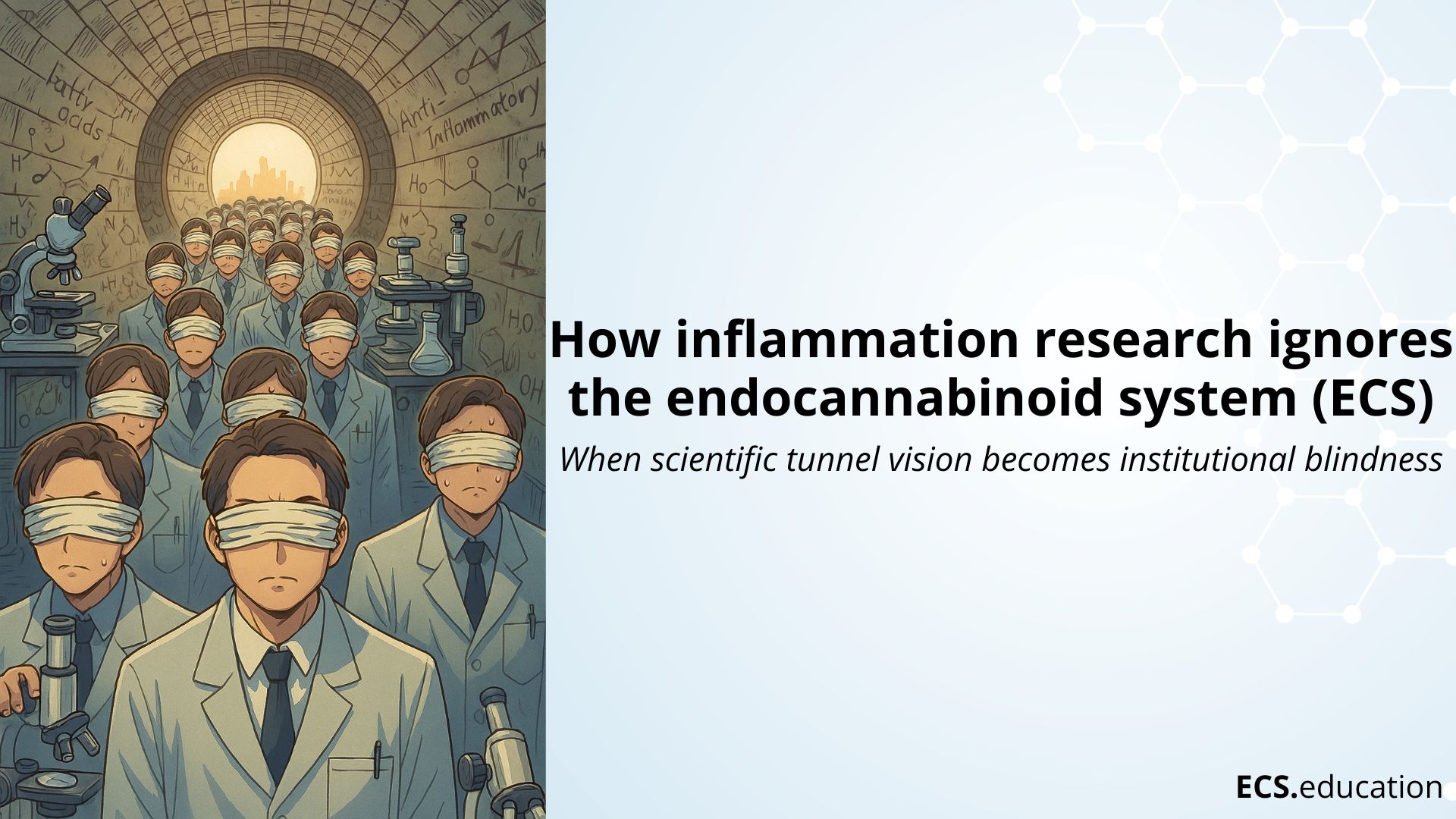
How Scientific Tunnel Vision in Inflammation Research Ignores the Endocannabinoid System (ECS)
When scientific tunnel vision becomes institutional blindness Lessons from history’s scientific blind spots Science has a troubling habit of missing the forest for the trees. For decades, gastroenterologists dismissed the idea that bacteria could cause stomach ulcers—until Barry Marshall proved Helicobacter pylori was the culprit by infecting himself. Geologists ridiculed…
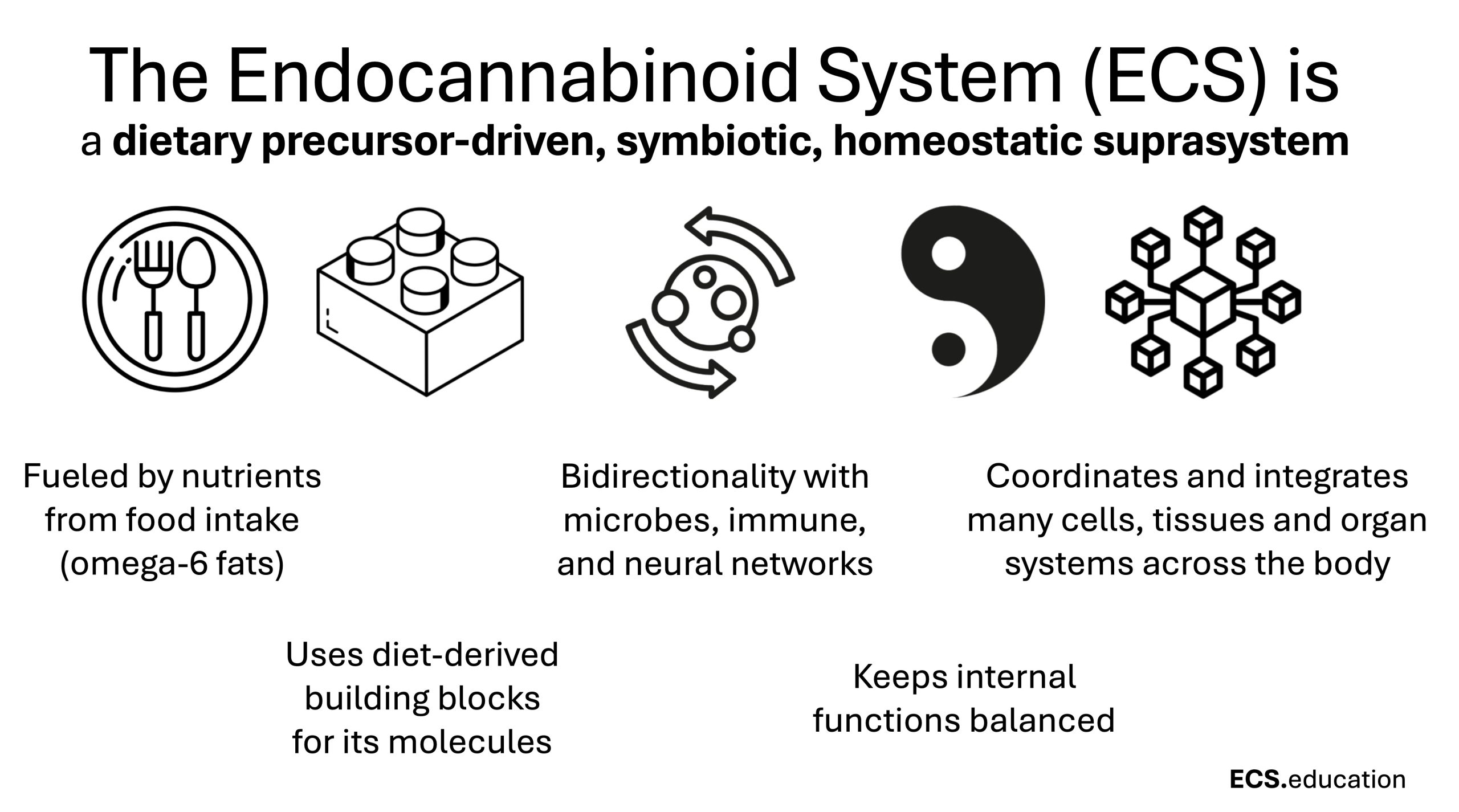
The Endocannabinoid System: Dietary Precursor-Driven ECS & Medical Education Gap
The Misunderstood Master Regulator The endocannabinoid system (ECS) is often considered the “cannabis system,” but this label ignores its true—and far broader and more important—role in holistic health. Instead of being defined by external substances, the ECS is a dietary precursor-driven, symbiotic, homeostatic suprasystem: a dynamic physiological network that maintains body-wide…

Obesity Rewires Your Endocannabinoid System (ECS): How Fat, Liver, Heart & Brain Are Transformed
Obesity is more than excess fat—it’s a disorder of endocannabinoid system (ECS) dysfunction. Explore how obesity rewires CB1 signaling in fat, liver, heart, and brain, driving chronic disease.
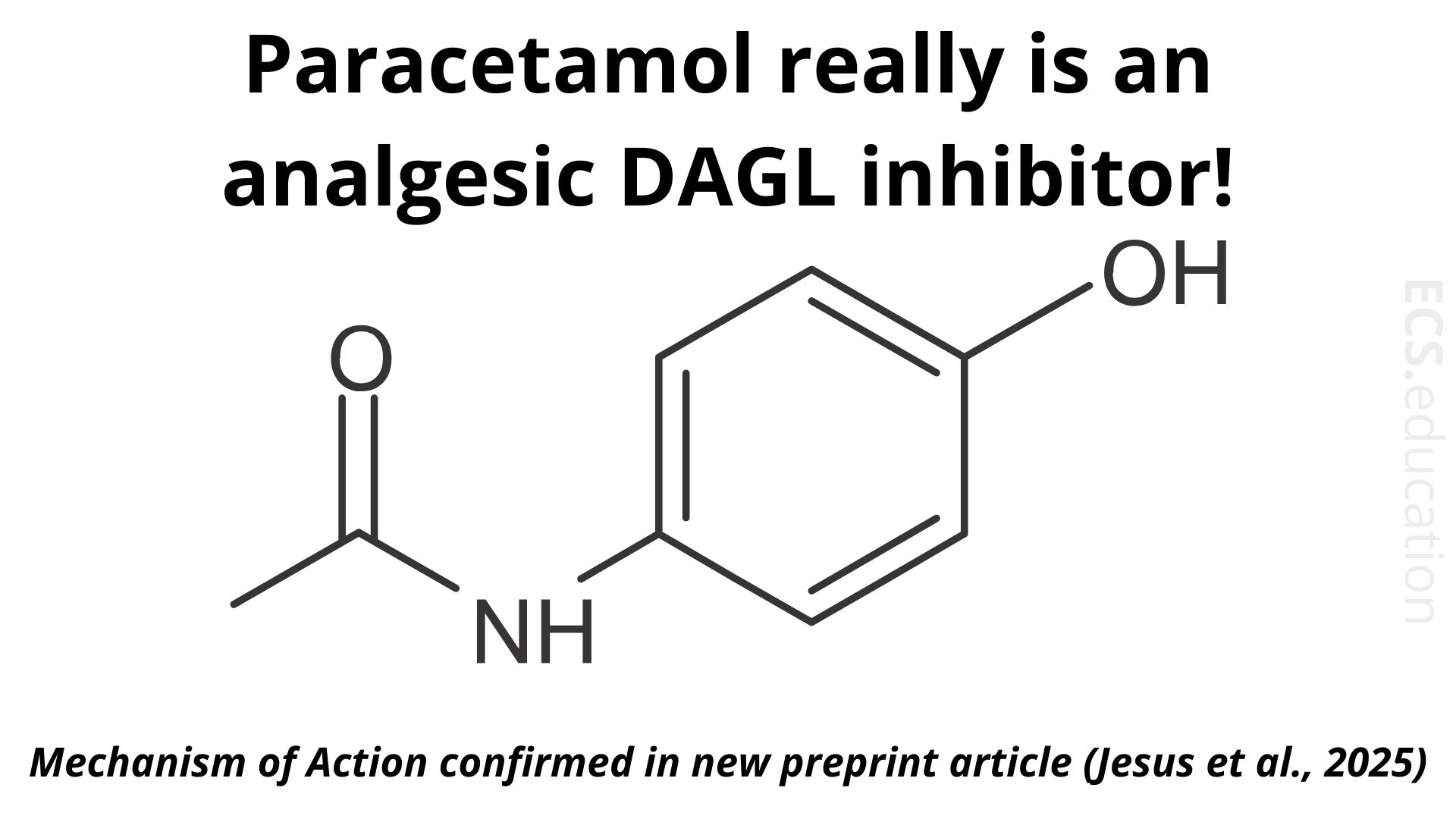
Paracetamol Confirmed as a Direct Analgesic DAGL Inhibitor: New Preprint Evidence
Important Note: This blog post discusses findings from a recent scientific preprint, meaning the research has not yet been formally peer-reviewed. Preprints allow for rapid dissemination of findings, but results should be interpreted cautiously until confirmed by peer-reviewed publication. Recently, we reported on a surprising new way that paracetamol (also known…
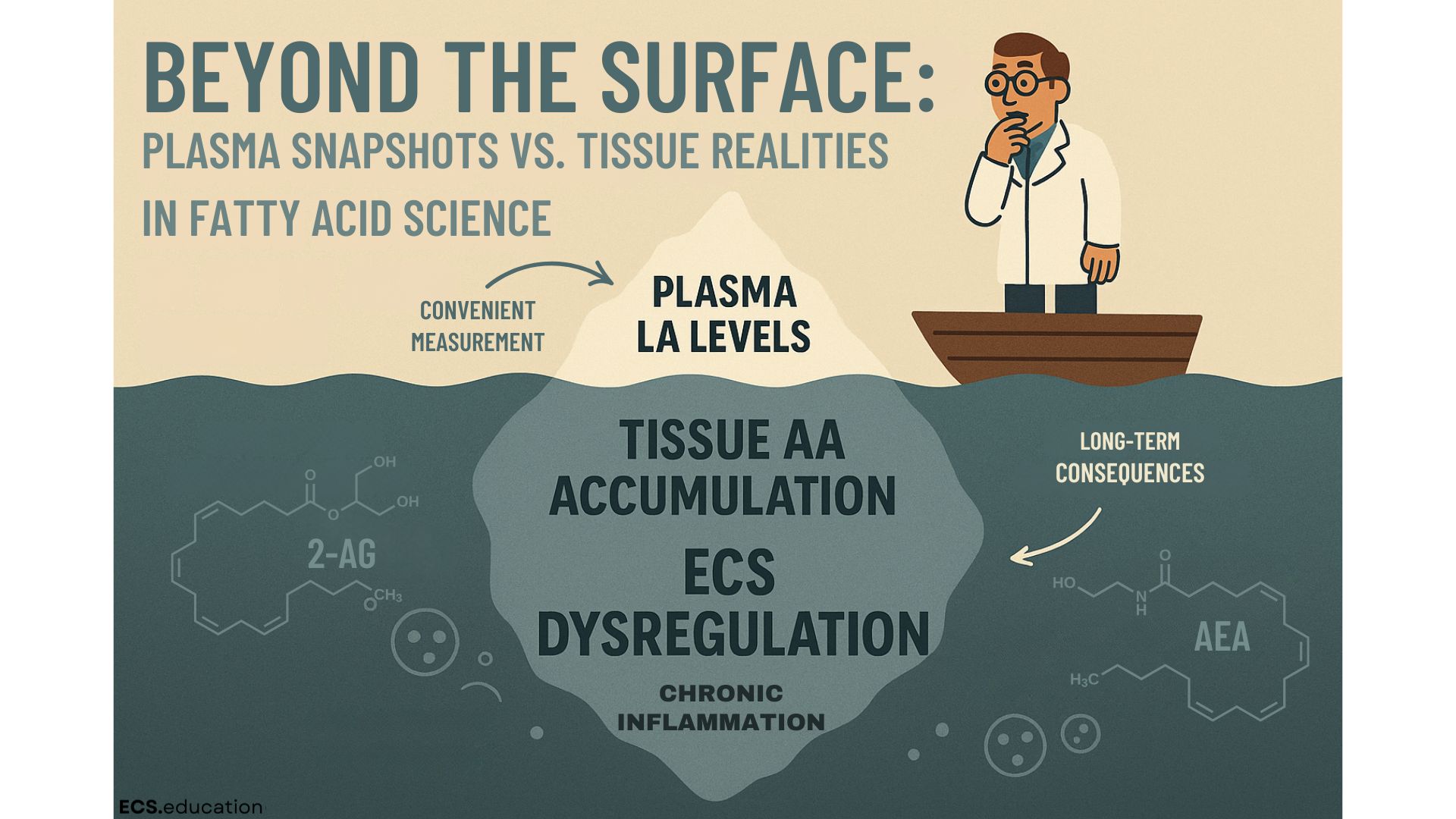
Omega-6, Mortality, and Your ECS: Unpacking the Latest UK Biobank Bombshell
A major UK Biobank study found higher plasma linoleic acid (LA) linked to lower mortality, seemingly contradicting concerns about high dietary omega-6 driving ECS dysfunction. This post unpacks the findings, distinguishing between plasma snapshots and tissue arachidonic acid (AA) realities, and explains why the omega-6/omega-3 balance and ECS perspective remain crucial for understanding metabolic health.
The Missing Link in Medicine: How the Endocannabinoid System (ECS) could Revolutionize Healthcare
Why isn’t the endocannabinoid system (ECS) taught in medical schools? This ancient system regulates hunger, pain, metabolism, and immunity—and it’s under attack from processed foods and outdated education. Learn how omega-6 fats disrupt the ECS, drive chronic disease, and what we can do to fix healthcare. Share this video to…
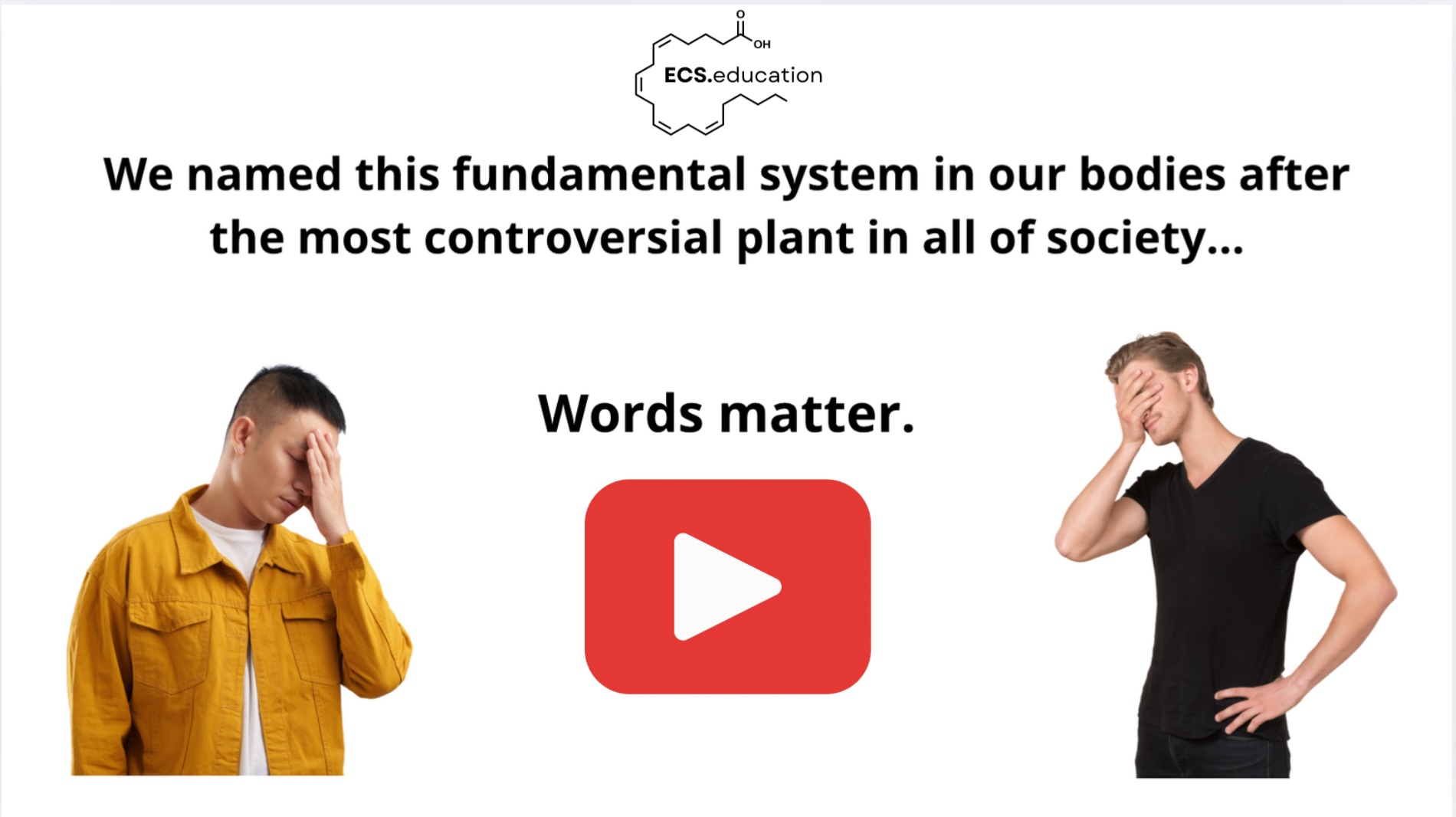
Understanding Medical Cannabis and the ECS
The endocannabinoid system (ECS) is one of the most important physiological systems in our body, regulating processes like mood, sleep, and pain. Yet, many healthcare professionals know little about it. This disconnect becomes even more striking when paired with the high but till growing acceptance of medical cannabis as a…

The Great Medical Education Blind Spot: How 2,470 ECS Publications Go Ignored
A critical analysis of four influential publications reveals a troubling disconnect in medical education: while thousands of researchers document the Endocannabinoid System’s crucial role in homeostatic regulation, mainstream medical education continues to operate in isolation from this knowledge. This systematic exclusion creates dangerous knowledge gaps in healthcare delivery.

The Medical Cannabis Paradox: High Acceptance, Low Understanding Among Healthcare Professionals
A striking paradox emerges from recent research: while 80% of healthcare professionals accept medical cannabis as legitimate therapy, less than 1% understand the endocannabinoid system through which it works. This disconnect highlights a critical gap in medical education.

